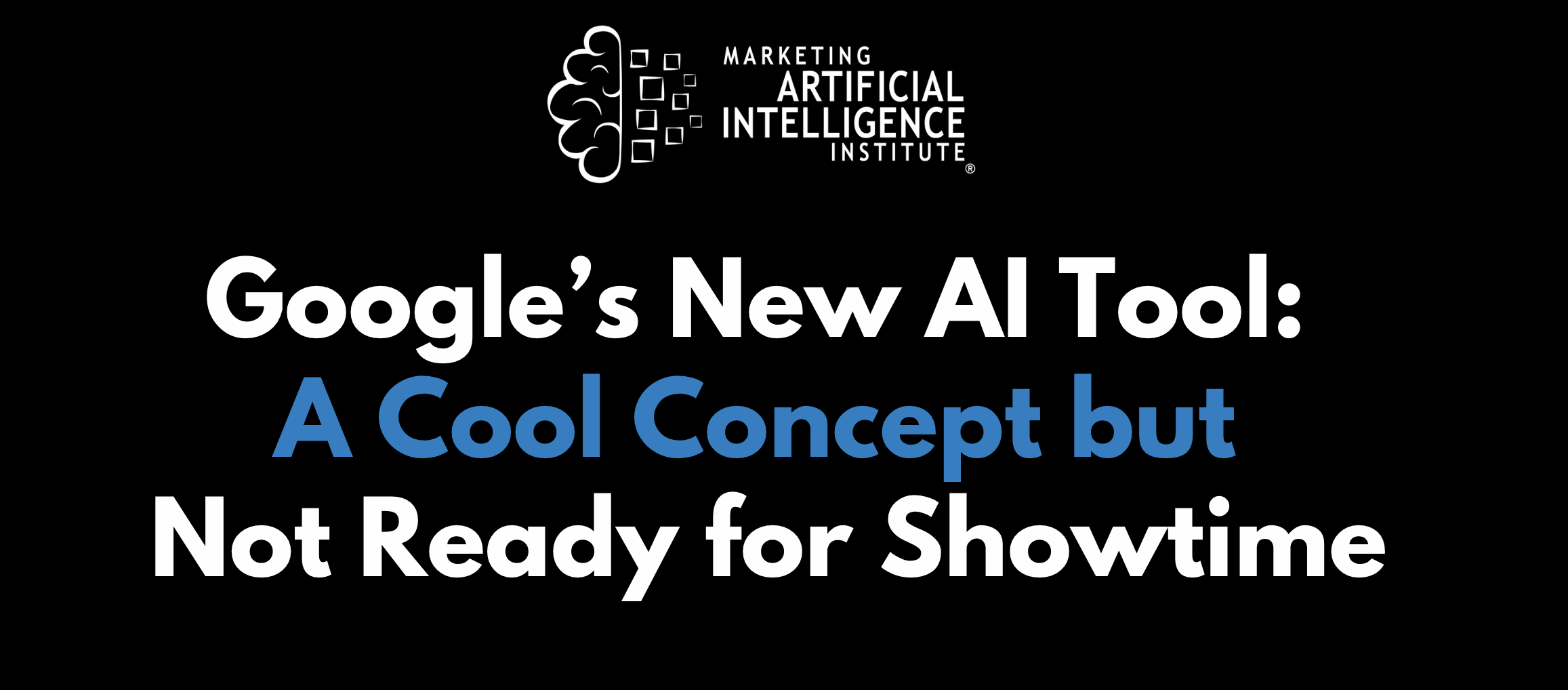Google Labs has launched a new experimental AI marketing tool called Pomelli, built to automate campaign creation while staying true to your brand's voice.
The tool works by analyzing a company's website to understand its identity, tone, and audience. From there, it generates custom marketing campaigns, including headlines, social posts, and ad copy, all designed to sound like they came from the brand itself.
The goal is to make scalable, on-brand content accessible to smaller teams that lack dedicated marketing resources, according to Google Labs. The tool is currently only available in the U.S., Canada, Australia, and New Zealand. Some users have reported hitting usage limits.
How well does it actually work?
To find out, I turned to the expertise of SmarterX and Marketing AI Institute founder and CEO Paul Roetzer during Episode 178 of The Artificial Intelligence Show.
The Business DNA Concept
Pomelli’s process starts by generating your "Business DNA." Users give it a website, and it goes to work analyzing the site to learn its visual aesthetics, tone of voice, and brand values, and even pulls logos and fonts.
This part, Roetzer notes, is impressive. It’s an automated version of a task that would typically take a human at a marketing agency three to five hours.
“It pulls all the images from the website and puts them into a little library that it can then use for creative” work, says Roetzer. “It creates a color palette. It is kind of cool.”
After building the brand profile, the tool asks what campaign you want to run. Roetzer tested it by asking it to "grow our artificial intelligence show podcast audience," and selected a campaign theme called "Essential AI Insights Weekly."
This is where the experiment fell apart.
When Roetzer tried to edit the creative assets, the results were less than intelligent. He attempted to swap in a different image of himself standing on stage.
“It cut me off,” he says. “The image it dropped in is my right shoulder and then just a background from the stage. And I was like, ‘OK, this obviously isn't very intelligent.’ It doesn't even know to focus on the human.”
The Verdict: Pomelli Will Not Replace Marketers Right Now
This hands-on test led Roetzer to a clear conclusion: “Marketers and creatives, don't worry. This is not automating your job.”
While the concept is strong, the execution is not there yet. The tool's failure to handle a simple creative edit was disqualifying in Roetzer’s one test.
“I would not be running a second test,” he says. “It's not even worth trying to do this again.”
He noted that the tool could improve, but it would require significant fine-tuning from people who actually understand creative work.
“I would say they need to go hire 50 creatives who've actually done creative work and do some fine tuning on this model,” says Roetzer. “As it is, it is not there yet.”
Mike Kaput
Mike Kaput is the Chief Content Officer at SmarterX and a leading voice on the application of AI in business. He is the co-author of Marketing Artificial Intelligence and co-host of The Artificial Intelligence Show podcast.


